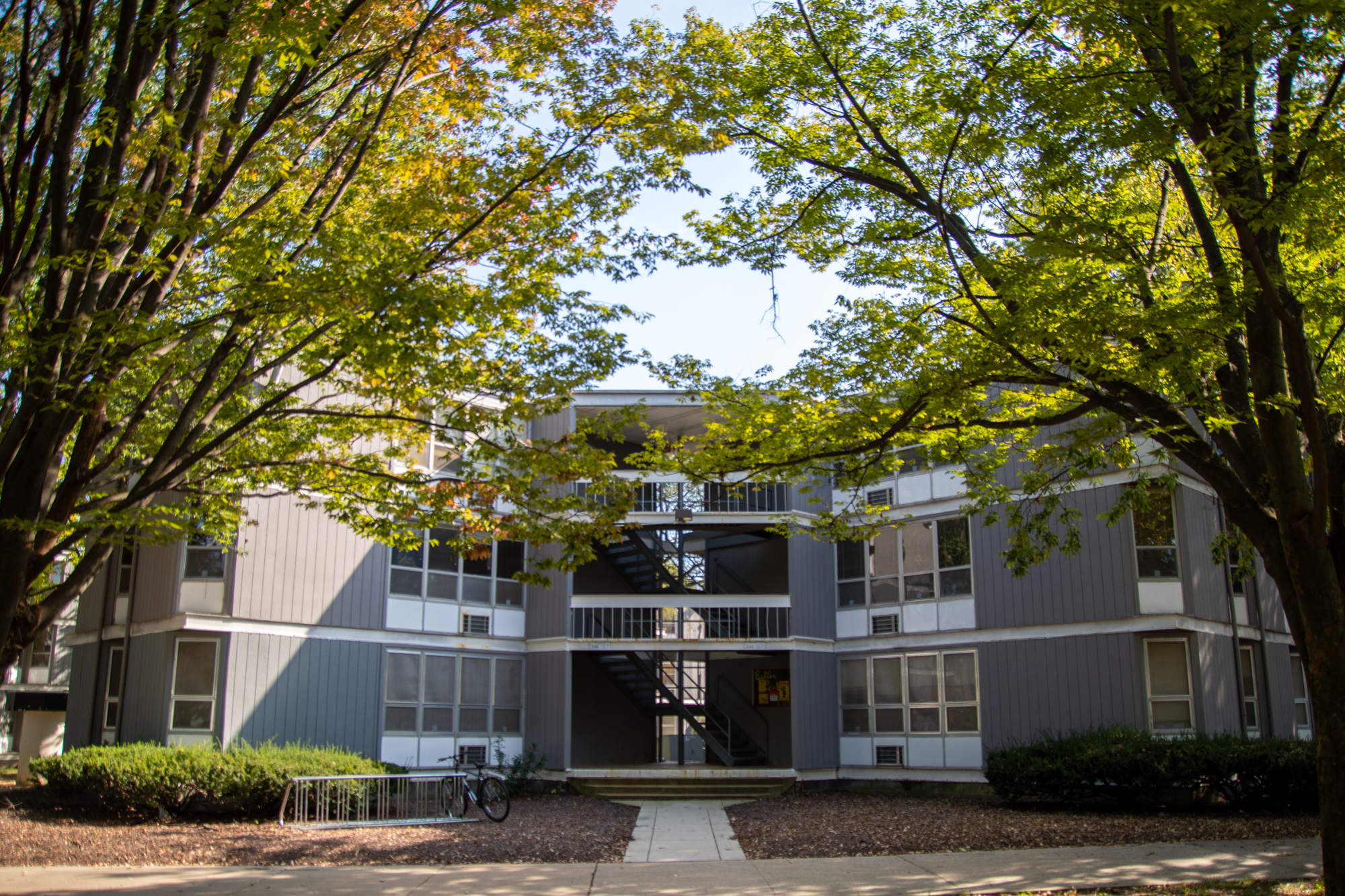University of Maryland administrators are considering including a graduate student living-learning program in the redevelopment of the former Old Leonardtown community.
This university currently offers several living-learning programs for undergraduate students, where students live with other students from the same academic program, such as College Park Scholars or University Honors, but none for graduate students.
There isn’t a set timeline for how the living-learning program would be implemented, university president Darryll Pines told The Diamondback. He said a potential living-learning program could increase graduate student retention rates and create an “enriching environment.”
Pines said living-learning communities could give graduate students who are Grand Challenges Grants awardees the chance to work on their challenges while living in a communal environment.
The Grand Challenges Program supports research projects and changes on campus that address key societal issues such as climate change and gun violence. The university has awarded 50 grants to projects and individuals in the university community.
Graduate Student Government president Autumn Perkey said the idea of a living-learning program for graduate students couldn’t operate similarly to programs like College Park Scholars because of the existing “constricted” curriculum for graduate programs.
[Graduate Labor Union choir builds solidarity through song]
“I think there’s the potential to create more stress rather than innovation as it would be additional requirements, possibly, depending on how they function,” said Perkey, a government and politics doctoral student. She emphasized that the plan for the program is not yet set in stone.
The former Old Leonardtown community has been demolished and will be replaced with a new approximately 750-bed complex for graduate students at this university, according to Ken Ulman, president of the Terrapin Development Company. He said the housing will be at below-market prices.
The project is a collaboration between this university and the Terrapin Development Company, according to Ulman.
Perkey said a graduate student living-learning program should be optional for students, or come with a scholarship in addition to stipends graduate students receive.
Students who join a living-learning program should get an additional stipend for working on Grand Challenges or should get some form of price reduction for their housing, she said.
Ulman said the idea of a graduate student living-living program is “very unique.”
“There are not a lot of examples of living learning communities for graduate students, and so there’s a lot of interest in that,” he said. “It’s in the early stages, but there’s a lot of momentum building.”
[UMD graduate students advocate for more than six weeks of parental leave]
He added that there is time to figure out details on the project because graduate students won’t move into the complex for at least two and a half more years.
Jillian Andres Rothschild, the GSG’s legislative affairs vice president, said living-learning programs could be a good option for some graduate students. The communities could help graduate students make new friends and find a sense of community, she explained.
Rothschild, a government and politics doctoral student, said university administration should instead place their focus on affordable housing.
“The priority should be making sure there’s affordable housing without having to do extra commitments,” Rothschild said. Students shouldn’t have to do additional homework in order to live in affordable housing, she said.
Pines told The Diamondback that in addition to the living-learning programs, the university is still going to try to create affordable housing for graduate students.
“We’re gonna still try to find affordable housing,” Pines said. “But we believe [the program] will enhance the graduate student experience.”



